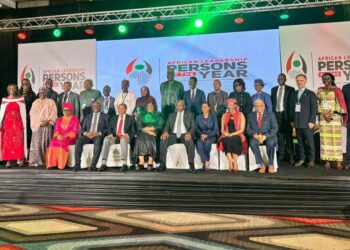By: BANKOLE CLIFFORD EKUNDAYO MORGAN
LL.M in International Maritime Law
Master in Governance and Leadership
Human Rights Advocate
THE INTERNATIONAL BILL OF HUMAN RIGHTS
The International Bill of Human Rights consists of the Universal Declaration of Human Rights, the International Covenant on Economic, Social and Cultural Rights, and the International Covenant on Civil and Political Rights. In 1966, the General Assembly adopted the two detailed Covenants, which complete the International Bill of Human Rights. In 1976, after the Covenants had been ratified by a sufficient number of individual nations, the Bill took on the force of international law. Essentially, the International Covenant on Economic, Social and Cultural Rights, protects economic, social and cultural rights, while the International Covenant on Civil and Political Rights, protects civil and political rights. Fundamentally, international human rights law is the body of international law that promotes and protects human rights. It is important to note that International human rights law is made up of treaties and customary international law.
THE UDHR IS THE FIRST GLOBAL EXPRESSION OF RIGHTS
The 10th day of December, 2024 the Universal Declaration of Human Rights (UDHR) turned 75 years of existence. The UDHR has been described as the first global expression of rights to which all human beings are essentially entitled. The UDHR serves as an eye opener in the protection and promotion of human rights. It was adopted by the United Nations General Assembly on the 10th day of December, 1948 at Palais de Chaillot, Paris. The UDHR came into existence on account of the challenges faced by the warring factions during the Second World War. During the 1st and 2nd world wars, there was no respect for life, human dignity and people were subjected to torture, inhuman and degrading treatment. Evidently, all the war factions came to the realization that they had lost infrastructural developments, lost lives and properties and subjected people to torture or cruel, inhuman or degrading treatments or punishments. So the UDHR symbolize the first global expression of rights to which all human beings are entitled. It is consists of 30 articles which have been highly structured in subsequent international treaties, regional human rights instruments, national constitutions and laws.
THE UDHR IS GLOBALLY CELEBRATED ON THE 10th DAY OF DECEMBER
The Universal Declaration of Human Rights was adopted by the General Assembly on the 10th day of December 1948 by a vote of 48 in favour, and zero (0) against. The adoption of the Universal Declaration of human rights on 10th day of December 1948 is a significant international commemoration marked each year on the 10th day of December. The 10th day of December each year has been set aside as International Human Rights Day. The commemoration is observed internationally and usually by National Human Rights Institutions taking the lead. In Sierra Leone, the Human Rights Commission of Sierra Leone in collaboration with Civil Society Organizations and other stakeholders observe this day by having a unified celebration.
WHAT ARE HUMAN RIGHTS?
Human Rights could be defined as the fundamental rights of an individual, protected by law and guaranteed by the state. A right is an entitlement, and when we talk about human rights we mean those rights that belong to every individual- (Man or Woman, Girl or Boy, Infant or Elder) simply because he/she is a human being. Human Rights consist of the basic standards without which people cannot enjoy/realize their inherent dignity. This in essence could be interpreted as the foundation of Freedom, Justice and Peace.
CHARACTERISTICS OF HUMAN RIGHTS
Human rights also have their characteristics which amongst others are:
• Universal
• Inherent
• Interdependent
• Inalienable
• Indivisible
• Interrelated
Universal: Human Rights are universal because they belong to every human being whether black or white, man or woman, boy or girl.
Inherent: Human Rights are said to be inherent because it is a birth right and or an inherent right accorded to every human being.
Inter-dependent: Human Rights are Inter-dependent, which means all rights support each other.
Inalienable: Human Rights are inalienable because you cannot lose those rights as long as you are a human being and without a valid legal reason.
Indivisible: Human Rights are indivisible because all human rights are equally important. It is important to note that one cannot be denied a right because someone decides that it is less important or non-essential. All rights stand together.
Inter-related: Human Rights are interrelated, which implies each gives meaning to the other. For instance, the right to life, right to health and freedom of movement cannot be enjoyed without the right to food and the right to safety and security of persons. In short, Rights complement each other.
THE RESPONSIBILITY ASPECT OF HUMAN RIGHTS
As a human rights advocate of long standing, I have observed with dissatisfaction that there is one major area which most human rights defenders fail to project, and that is the “responsibility” aspect of human rights. Human Rights go along with responsibilities. For instance all those who have reached the voting age (18yrs and above) have the inherent right to register and to vote in a national election. Their corresponding responsibilities are to ensure that while they exercise their civil and political rights, they do not involve in double voting or any aspect of election related malpractice or violence.
REGISTERED POLITICAL PARTIES RESPONSIBILITIES
It is prudent to state here that all registered political parties have the legal right to fully function as political parties. However, as a registered Political Party, you have the corresponding responsibilities to first, abide by the electoral laws , secondly, abstain from rigging elections and avoid creating elections related violence, thirdly, win elections on the popular will of the people, but not by influencing the Electoral Commission of Sierra Leone (ECSL) to rig elections in your Political Party’s favour. It is important to note that the Electoral Commission of Sierra Leone (ECSL) has the legal right and sole responsibility to conduct free, fair, credible and inclusive public elections. In the conduct of public elections, ECSL has the corresponding responsibility to conduct all public elections within the legal frame work, and MUST desist from all forms of elections related malpractices. As a Human Rights advocate, it is my responsibility to constructively educate the general public on write-up on this nature and to continue to impress on the minds of all EMBs that “fair” election means we have honest balloting and counting administered without fraud or manipulation.
LEGAL REFORMS
Essentially, there should be periodic legal reforms and the essence of that is to strengthen the independence, integrity and performance of the institution that is charged with the responsibility to conduct free, fair, credible and participatory elections. The ultimate aim of legal reforms is to improve on the conduct and outcome of the electioneering processes. The conduct of free, fair, credible, acceptable and inclusive elections is crucially important in every democratic state.
CONDUCTING FREE AND FAIR ELECTIONS
Procedurally, for a state to be regarded as democratic, it must conduct a Free, Fair, Credible and Inclusive general elections to lead to acceptable results. These are the foundations of democracy and allow for the free and just societies we want to live in. As a patriotic citizen, you must contribute constructively in ensuring that your voice count in determining the future of your country and thereby shaping the democratic process of your country. Crucially important, is the issue of a credible institution (court) charged with the responsibility of resolving all electioneering complaints in a timely manner.
ONE MONTH PERIOD AFTER DECLARING A WINNER IN GENERAL ELECTION
Judicial efficiency is of utmost importance in the administration of justice. It helps to build public trust and confidence in the whole justice system. Judicial efficiency refers to the expeditious and effective functioning of the courts. Elections related complaints must be given the urgent attention needed, rather than ruling party using it as a yardstick to frustrate opposition parties. I humbly submit that, there be a One Month period after declaring the winner to handle any elections related complaints in court. Upon the outcome of the case in court, then the swearing in ceremony, rather than the mad urgency in swearing in immediately after announcing the winner in an election. Citizen’s voice must count and ECSL has the primary responsibility to ensure that, citizen’s voice fully reflect their vote cast in an election conducted.
























